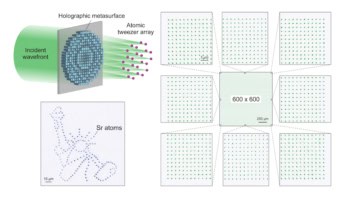
Three Nobel laureates have put their weight behind calls for the European Commission to recognize photonics as a vital research area in the next round of its €100bn research and innovation programme, which will run from 2021 to 2027. In an open letter to the Commission, written in December but made public late in January, Gérard Mourou, Stefan Hell and Theodore Hänsch express their “deepest concern” that “photonics does not appear to remain a priority for the European Commission”.
Their intervention is not the first time that the photonics community has raised concerns about the draft funding proposal. In November the European Photonics Industry Consortium (EPIC) made a statement criticizing the proposed budget and requesting that photonics should be explicitly added as one of the priority “areas of intervention” in the upcoming Horizon Europe programme.
In their letter the Nobel prize-winners point out that Europe is now a world-leader in photonics science and innovation, a consequence of the “explicit focus and support for photonics in the current Horizon 2020 programme.” According to Photonics21, a public–private partnership supported by the European Commission to bring optical researchers and industries together, the European photonics market has the potential to triple in value to more than €200 billion by 2030. Throughout Europe around 300,000 people are directly employed in the photonics sector, while some 700,000 new jobs could be created by 2030, claims Photonics21.
Critically, however, that predicted growth depends on continued priority funding for photonics research through the Horizon Europe programme. Photonics21, echoing the concerns raised by EPIC and the three Nobel laureates, warn that technologies that are crucial for future industrial growth, such as driverless cars and rapid diagnosis of major diseases, may well be hindered “if photonics is not treated with the specialist, priority status it currently receives under the current Horizon 2020”.
Photonics is currently one of six Key Enabling Technologies (KETs) prioritized across Horizon 2020. In the new Horizon Europe programme, however, the number of KETs has been reduced to five, and photonics has been merged into a single KET with micro and nanoelectronics. What’s more, these new KETs appear to have been backgrounded, and are only vaguely alluded to in the Horizon Europe budget proposal.
Instead, the emphasis has been placed on nine high-level aims and challenges. These “areas of intervention”, such as “Key digital technologies” or “New generation internet”, rely on innovations in photonics and other technologies, but critics say that this change of emphasis does not reflect the broad scope of these underlying fields – and so important new areas of research may go unfunded and could risk future innovations.
Also at stake is the future of Photonics21 itself, which since 2005 has played an important co-ordinating role for the European photonics sector. With more than personal 3000 members, it brings together around 1700 European photonics companies and research organizations – so it came as a surprise when no photonics-industry partnership was proposed for Horizon Europe.
In their letter, Hell, Mourou and Hänsch explicitly urge the European Commission to add photonics as a tenth priority area of intervention, which should also lead to a renewed partnership between Photonics21 and the Commission. “We firmly believe that it would be a strategic mistake to remove photonics from the technologies priority list,” they write. “We therefore reiterate the importance of empowering a vibrant European photonics industry and research community, as a specific objective both within and throughout the Horizon Europe programme.”



